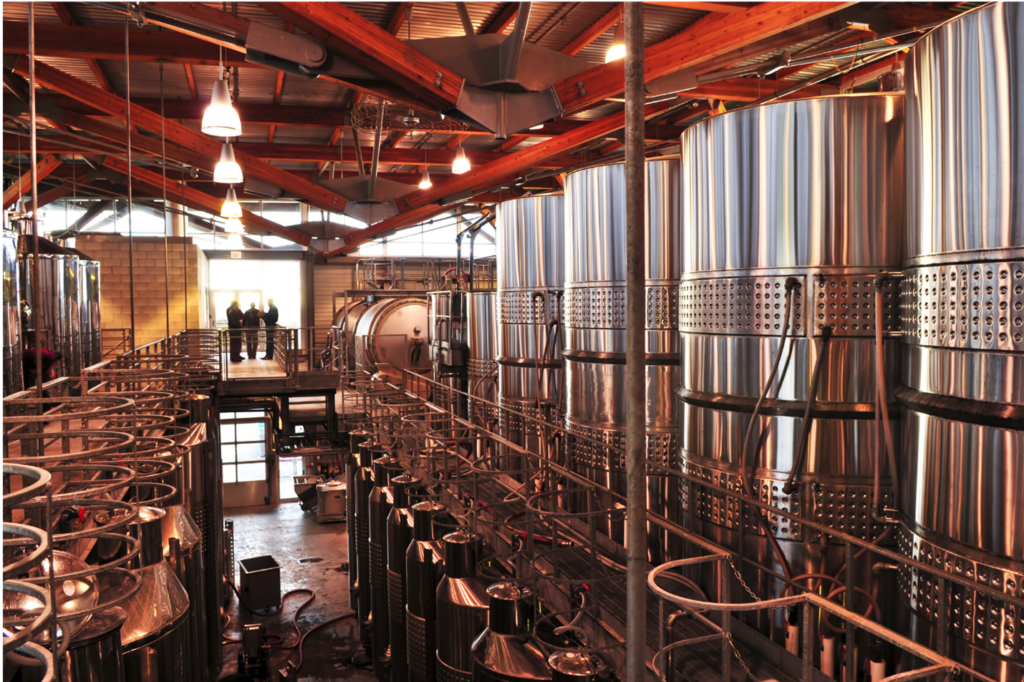Fermentation Expert
Introduction
Fermentation experts play a pivotal role across a variety of industries, assisting with the metabolic transformation of organic compounds, such as carbohydrates, to produce a wide array of products, including foods and beverages, biofuels, pharmaceuticals, and industrial enzymes. This is done by using microorganisms like bacteria, fungi, algae, or yeast. In this blog, we will explore the diverse range of industries that benefit from the expertise of fermentation professionals, discuss how these experts can assist stakeholders, and provide guidance on the optimal selection and utilization of these experts to yield the most favorable results.

Associated Industries and the Use of Fermentation Experts
Food and Beverage Production
Fermentation experts play a crucial role in the production of many food and beverage products like beer, wine, cheese, yogurt, sauerkraut, and bread. These experts help ensure the quality, flavor, and safety of these products while assisting with optimizing production processes.
Biofuels
Fermentation is a key step in biofuel production, particularly in the generation of ethanol and biodiesel. Fermentation experts work in this industry, improving the efficiency of processes, optimizing feedstock utilization, and developing best practices in sustainable biofuel production methods.
Pharmaceuticals
The pharmaceutical industry relies on fermentation for the production of antibiotics, vaccines, enzymes, and other compounds. Fermentation experts help here by designing and optimizing the processes to ensure consistent product quality and yield.
Biotechnology and Biopharmaceuticals
Fermentation is used in the production of biopharmaceuticals (like monoclonal antibodies and recombinant proteins). Fermentation experts in this industry help produce microbial cultures to produce the desired therapeutic molecules most efficiently.
Enzyme Production
Industrial enzymes have applications in many various industries, including textiles, detergents, and biofuel production. Fermentation experts work in assisting with enzyme production by optimizing processes so that the enzymes are produced with high activity and good stability.
Agriculture
In the microbial-based agricultural products industry, fermentation experts assist with the production of products like biopesticides, biofertilizers, and probiotics for livestock. These products are used to enhance crop yield and animal health.
Environmental Biotechnology, Remediation and Waste Valorization
Fermentation experts contribute to environmental industries by developing processes for the treatment of wastewater and the conversion of organic waste into valuable bioproducts like biogas and biofertilizers. In environmental science and engineering arenas, fermentation experts work on bioremediation processes that are used to clean up contaminated sites using microorganisms that degrade pollutants. Fermentation experts also explore ways to convert organic waste materials into valuable products like biofuels, organic acids, and biopolymers, reducing waste and promoting sustainability.
Cosmetics and Personal Care
Some cosmetic and personal care products, like skin care formulations and fragrances, are created through microbial fermentation. Fermentation experts in this field help by ensuring that the quality and consistency of these products meets target specifications.
Bioplastics and Biochemicals
Fermentation is often used to produce bioplastics and biochemicals as sustainable alternatives to more traditional plastics and chemicals. Here, the fermentation experts focus on optimizing processes and developing eco-friendly materials.
Leveraging a Fermentation Expert for Best Results
Hiring the right fermentation expert is critical to any of these endeavors. The hiring process should follow these guidelines:
Identify the Right Expertise
Choose a fermentation expert with expertise both in the specific industry involved and in the exact application of fermentation needed. Look for professionals who have a strong understanding of microbiology, biochemistry, and the specific fermentation processes relevant to the project. If the industry has strict regulations, confirm that the expert is well-versed in the compliance requirements. Make certain the expert has a track record of success in similar projects.
Clearly Define Objectives and Establish Clear Lines of Communication
Begin by defining specific goals and objectives for the fermentation project and the expert’s participation. Provide clarity on what you hope to achieve. This might include topics like increasing production yield, improving product quality, or reducing production costs. Whatever your goals are, be clear about the desired outcomes. Establish proper lines of communication with the fermentation expert. Regular and open dialogue helps ensure that everyone is on the same page, and that any challenges or changes can be addressed promptly.
Close Collaborative Planning and Access to Resources
Collaborate closely with the expert at the beginning to plan the project. Discuss and identify timelines, milestones, and resource requirements. Make sure both all participants, including the expert, understand their roles and responsibilities. Provide the fermentation expert with access to the necessary resources, such as laboratory facilities, equipment, and raw materials. Ensure they have the tools they need to conduct experiments and analyses effectively.
Establish Data Sharing and Documentation Protocols
Encourage the expert to maintain thorough documentation of their work, including experimental protocols, data, and results. This documentation is likely to be crucial for tracking progress and making informed decisions.
Intellectual Property (IP) Considerations
Discuss IP arrangements and agreements, especially if the project involves proprietary processes or products. Ensure that both parties have a clear understanding of IP rights and ownership.
Technology and Knowledge Transfer
If the project involves scaling up from laboratory to industrial production, work with the fermentation expert to facilitate technology transfer. Ensure that the knowledge and processes developed can be seamlessly integrated into large-scale production. Always encourage knowledge sharing between the fermentation expert and your team. Training and knowledge transfer empower your organization to continue benefiting from the expertise gained during the project.
Stay Flexible and Adaptable
Be open to adjusting the project plan if unexpected challenges arise. Flexibility allows you to adapt to changing circumstances and optimize the project’s success.
Conclusion
The decision to hire experts in fermentation is a strategic move that can greatly benefit almost any organization. Their specialized knowledge and experience in this field will not only enhance the quality and consistency of fermentation processes but can also open doors to new opportunities and innovations. Utilizing their expertise, organizations can expect improved product development, increased efficiency, and a competitive edge in the market. Investing in experts in fermentation is an investment in future success, and it is a decision that holds the potential to yield significant long-term dividends.
Partner with LEC for Fermentation Success
At LEC Partners, we are dedicated to helping businesses of all sizes achieve sustainable and successful outcomes. Whether you’re a startup or a multinational company, our community of world-renowned bioeconomy experts has the experience and expertise to guide you to success.
Why Choose LEC Partners?
- Unmatched Bioeconomy Expertise: As trusted leaders in the bioeconomy, we deliver sustainable and profitable results, guiding projects from planning to execution.
- Customized Teams: Your project is unique, and so is our approach. We assemble a custom team to meet your specific needs, whether you require one expert or many.
- Streamlined Communication: No matter the size of your project team, you will always have a single point of contact for seamless coordination and communication.
- Comprehensive Services: Beyond engineering, operational, and financial guidance, we offer additional services like regulatory support and expert witness testimony, to ensure you are covered from every angle.
Ready to Transform Your Fermentation Business?
Take the next step and partner with us to shape the future of Fermentation. Contact us today to learn how our community of over 180 bioeconomy experts can help you achieve your goals.
Have some questions?
Not sure where to start?
Let's start a conversation. We're here to help you navigate
the bioeconomy with confidence.

